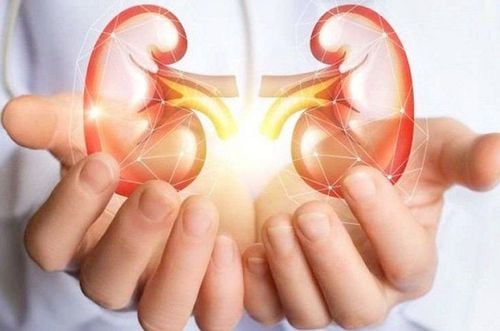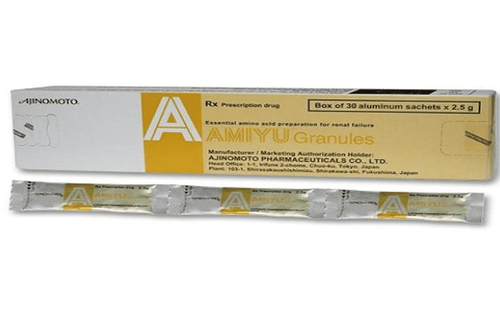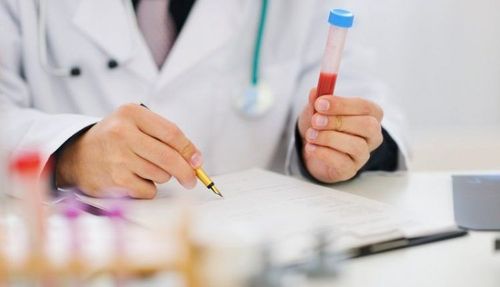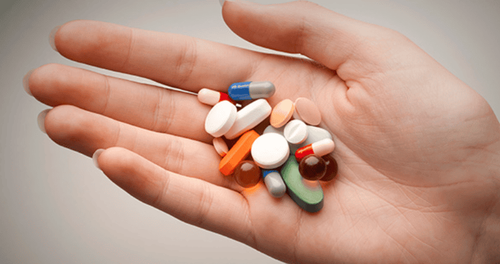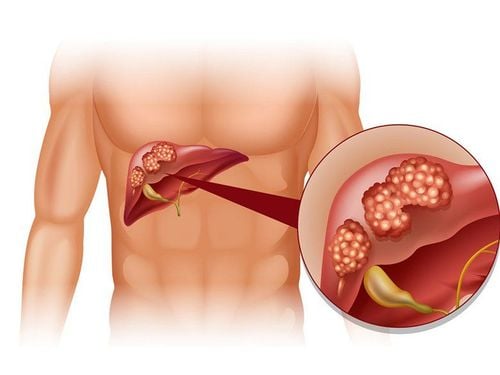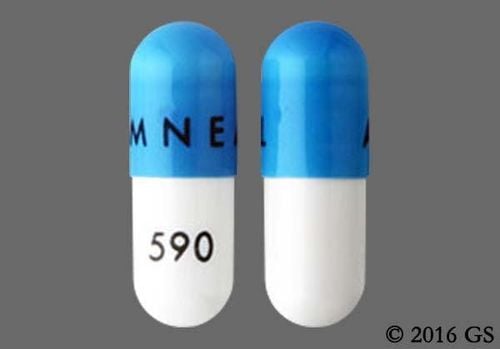This is an automatically translated article.
The blood creatinine test provides important information about the function of the kidneys in the body. This is a metabolite from metabolic processes. Healthy kidneys filter creatinine and other waste products from the blood into the urine. If kidney function is impaired, the blood creatinine test will be increased.1. What is a blood creatinine test?
Creatinine is a metabolic product made by muscles from the breakdown of a compound called creatine, which is part of the energy production cycle needed for muscle contraction. This is a waste product, which is removed from the body by the kidneys, filtering creatinine and other waste products from the blood and excreted in the urine.Thus, a stable creatinine level in the blood is evidence that the kidneys are working properly. The amount of creatinine produced and released into the bloodstream depends on a person's body size and muscle mass. For this reason, creatinine levels are generally slightly higher in men than in women and children.
Results from a blood creatinine test may be used in conjunction with results from other tests, such as a 24-hour urine creatinine test, which are used to evaluate kidney function.
2. What does the blood creatinine test mean?
The blood creatinine test is used to evaluate kidney function. This parameter is often ordered in conjunction with the BUN (blood urea nitrogen) test to assess the overall functioning of the kidneys. If the creatinine and BUN tests are found to be abnormal or if the person has underlying medical conditions affecting the kidneys, such as diabetes or high blood pressure, can the creatinine and BUN test be used? only to monitor renal function but also to assess the effectiveness of treatment.
In addition, a blood creatinine test is indicated to assess kidney function before certain procedures such as computed tomography are indicated, because medications that may pose a risk to the kidneys may be indicated if: are not rapidly cleared from the body.
Results from the creatinine test can also be used to estimate how much blood is filtered through the kidneys per minute. This is called the estimated glomerular filtration rate (eGFR). This parameter is used to screen and detect early kidney damage, help diagnose chronic kidney disease, and monitor kidney status over time.
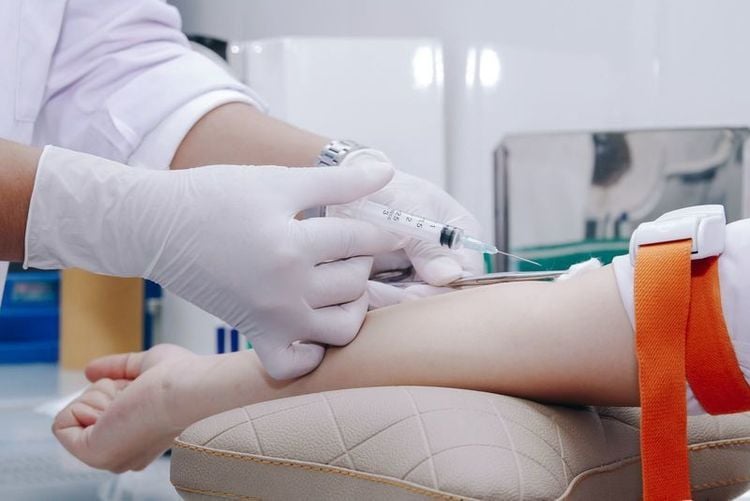
Xét nghiệm creatinine máu được sử dụng bằng máu ngoại vi
3. When should blood creatinine test?
Blood creatinine test may be ordered during routine physical examination. Furthermore, this indication can also be made if the examining physician suspects that the kidneys are not functioning properly as indicated by the signs and symptoms, including:
Loss of appetite, fatigue, trouble sleeping, lack of concentration. eye swelling, especially around the eyes or in the face, wrists, abdomen, thighs, or ankles; Foamy, bloody, or coffee-colored urine; Decreased urine output; Problems urinating, such as a burning sensation, need to urinate, especially at night; Pain in the middle of the back, below the ribs, near where the kidneys are; High Blood Pressure. In addition, a blood creatinine test may be ordered, along with the BUN and urine albumin tests, performed periodically when a patient has known kidney problems or conditions that may affect the kidneys. renal function.
Both BUN and creatinine may be ordered when a CT scan is scheduled, before and during treatment with certain drugs, and before and after dialysis to monitor the effectiveness of these treatments .
4. How to analyze the results of the blood creatinine test
Blood creatinine test results are measured in milligrams per deciliter or micromoles per liter. The normal range of a blood creatinine test may be 0.84-1.21 milligrams per deciliter (74.3 to 107 micromoles per liter), although this result can vary between laboratories, between men and women and by age. Because blood creatinine levels increase with muscle mass, men generally have higher creatinine levels than women.
In general, if the serum creatinine level is high, it means that the kidneys are not working well. The body's creatinine level may also temporarily increase if the person is dehydrated, has low blood counts, eats a lot of meat, or takes certain medications. Creatine in supplements may have a similar effect.
If the blood creatinine test is higher than normal, which may mean that the kidneys are not working as they should, your doctor will want to confirm the results with another blood or urine test. Now, since kidney damage or kidney failure is a concern, it's important to manage any conditions that may be contributing to kidney damage. It is especially important to keep blood pressure stable, because it affects the glomerular filtration pressure. Some conditions cannot reverse permanent kidney damage, but with appropriate treatment, further damage should be prevented.
Some examples of conditions that can increase blood creatinine tests include:
Damage or inflammation of the blood vessels in the kidneys (glomerulonephritis) due to infections or autoimmune diseases; Kidney infection (pyelonephritis); Death of cells in the small tubules of the kidneys (acute tubular necrosis) caused by drugs or toxins; Conditions that can block the flow of urine in the urinary tract, such as prostate disease or kidney stones; Reduced blood flow to the kidneys due to shock, dehydration, congestive heart failure, atherosclerosis, or complications of diabetes.

Sau khi có kết quả xét nghiệm, bác sĩ sẽ đưa ra những tư vấn cụ thể
In contrast, low blood creatinine results below normal values are uncommon and are not usually a cause for concern. This can be seen with conditions that lead to loss of muscle mass such as severely malnourished, exhausted patients.
In a nutshell, a blood creatinine test is a measure of the serum creatinine concentration, which allows an estimate of the kidney's filtration rate. In patients with renal failure, this result will be very high. However, a high blood creatinine test parameter should be analyzed carefully, early screening for kidney damage if any in order to quickly restore kidney function in time.
To actively protect the health of the body in general and the kidneys in particular, you should have regular health check-ups. Currently, Vinmec International General Hospital has general health checkup packages suitable for each age, gender and individual needs of customers with a reasonable price policy, including:
Health checkup package general Standard 2020 General health check-up package VIP 2020 General health check-up package Special 2020 General health check-up package Children 2020 General health examination package Work permit - Issuance of work permits Examination results of people sick will be returned home. After receiving the results of the general health examination, if you detect diseases that require intensive examination and treatment, you can use services from other specialties at the Hospital with quality treatment and services. outstanding customer service.
If you want to have a general health check-up at Vinmec, please book an appointment directly at the website or contact the hotline system for detailed advice.
Please dial HOTLINE for more information or register for an appointment HERE. Download MyVinmec app to make appointments faster and to manage your bookings easily.
References: labtestsonline.org, mayoclinic.org



